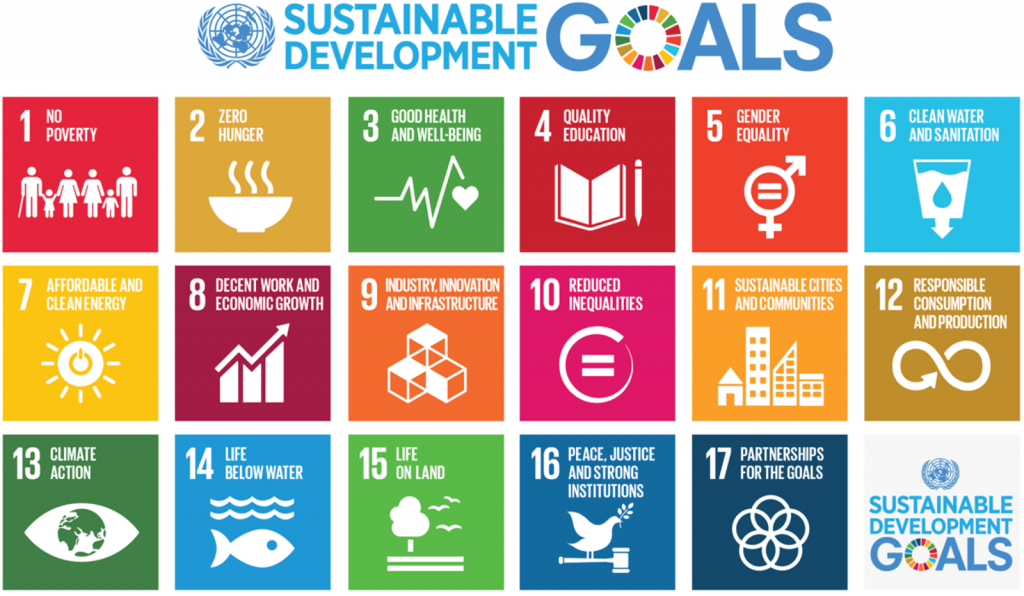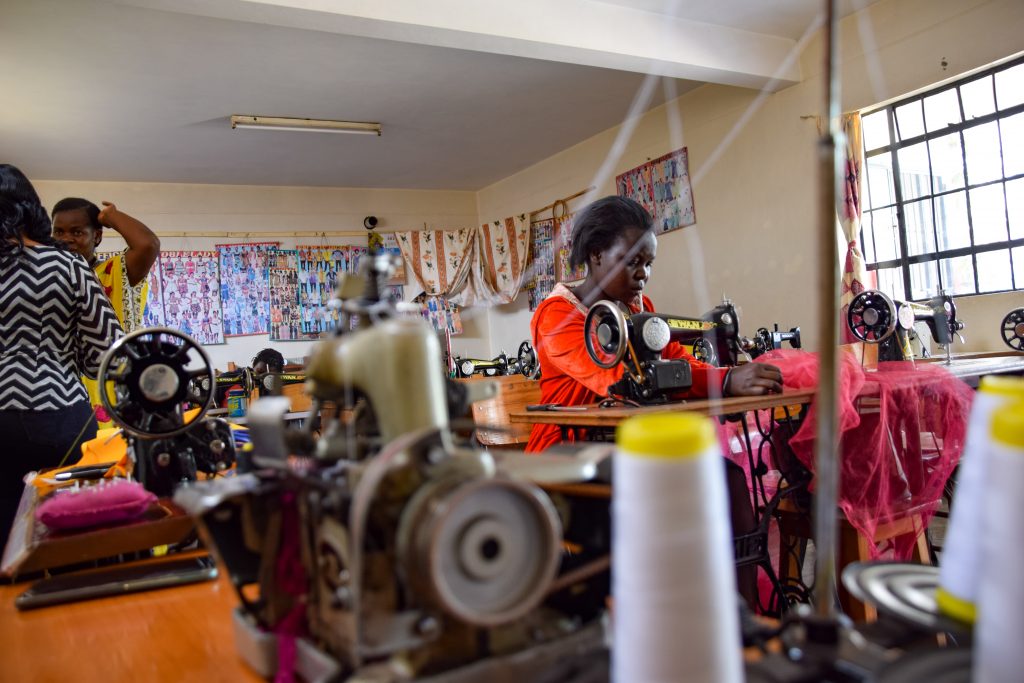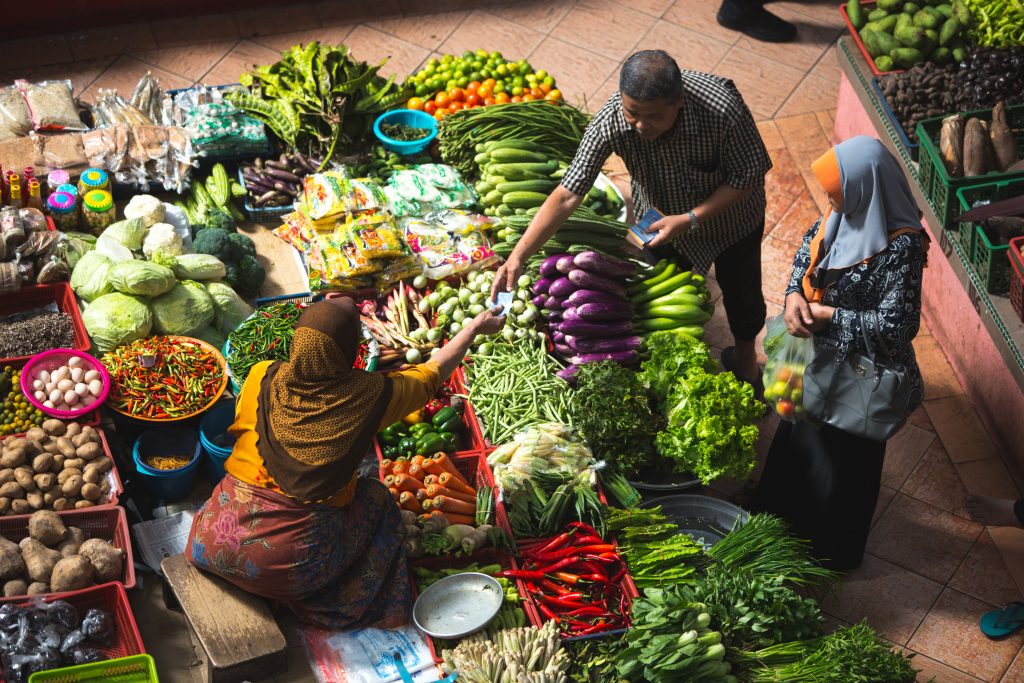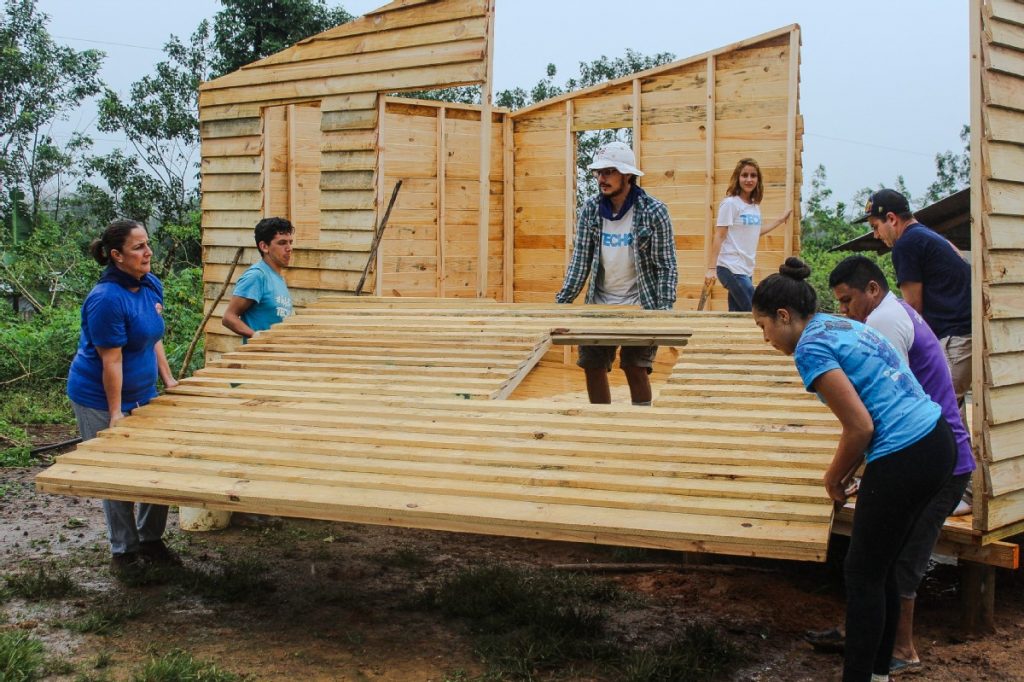As most of us should know by now, the 17 Sustainable Development Goals (SDG) are a call for action by all countries – poor, rich and middle-income – to promote prosperity while protecting the planet. They recognize that ending poverty must go hand-in-hand with strategies that build economic growth and address a range of social needs including education, health, social protection, and job opportunities, while tackling climate change and environmental protection.

However, not many people (including companies, organizations and public administrations) really understand how they can contribute to most of them. In the following months, we will try to help you by explaining in a simple way what each SDG means, by giving you very practical examples on how each of us can contribute and by showcasing businesses/NGOs that have already demonstrated that it is possible to be aligned to the SDGs.
For each of the 17 goals, there are specific targets and indicators to measure them. In total, the 17 SDG are defined in a list of 169 targets. Progress towards these targets is agreed to be tracked by 232 unique Indicators. In this article we are going to focus only on SDG 1.
What does SDG 1 (End poverty in all its forms everywhere) entails?
SDG 1 is a commitment to end all forms of poverty by 2030. We can read this and ask ourselves many questions such as: Is it possible to achieve this goal? How does this apply to my country? We can assure you that there is poverty everywhere, even in the most developed countries.
This SDG is not only related to profits and salaries, the 7 targets (sub-goals) are related to social protection, equal rights to economic resources, ownership rights, resilience to climate-related extreme events and investment to eradicate poverty. There are 14 specific indicators to measure these targets.
Most of these targets, however, must be tackled by Governments or International Organizations, but there are still many small actions we can do as individuals or as businesses to support the alleviation of poverty in any given country.
What specific actions can we take to support people in need?
- Provide people with the tools they need to thrive
Some examples of businesses that can contribute to giving them tools might be those that provide microloans or microinsurance products that allow them to start their own businesses. The idea is that they can have some sort of steady income that can help them get through the first stages of setting up a small business. It could be selling fruits or having a small food stand at the market, sewing clothes for people or transporting people in a tuk tuk.
Besides the financial aspect, they would also need to learn how to manage a business itself. Workshops aligned with basic training on accounting, sales, work ethics, marketing will be necessary to understand business needs and the effort that it requires to run one.
Another very important tool is education which we will explain in more detail when we have a look at SDG 4. Giving people the opportunity to receive education or get trained on a specific trade will open new doors for them, such as working for an established company with decent working conditions or pursuing their own dreams.

- Buy local wherever you are
Local sourcing is critical for the sustainability of small businesses and value chains. When you travel as a tourist or for work, or even when you are at home, follow these basic tips to support locals:
- Find out what products are grown locally versus imported and try to always purchase the local ones.
- Go to local markets where local producers sell their goods and prioritize buying from them than from international or bigger shops.
- Check the labels at the supermarket, make sure you buy local as much as possible to contribute to the local economy.

- Social Corporate Responsibility (SCR) versus voluntourism
Many companies are taking seriously their SCR commitment by donating directly part of their profits to social causes or by involving their staff in actual activities with NGOs like painting schools or building houses. It is especially important that donations are given to responsible causes, and collaborations are done with organizations that have good reputation in this field.
Unfortunately, it is well-known that there are numerous cases of fraudulent NGOs or social projects that might be actually damaging local communities and people who are involved. That is the reason why we have to be very careful when we travel to do volunteer work, known as “voluntourism”. Depending on what the volunteer work entails we might be harming more than helping out, so please watch out when you sign up to work on a vulnerable community as a volunteer and make sure you do some research beforehand.

These are just some practical examples on what we can do as citizens of this world to support people that are in need. There are many other ways to do it, if you would like to deep in this subject or have any questions, do not hesitate to contact us, we are here to help!

Tourism for a Natural Future. Rural Reactivation, Business Sustainability and International Development.
